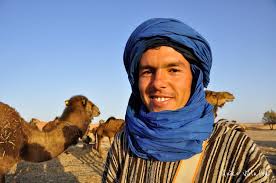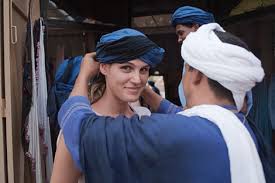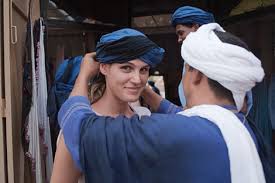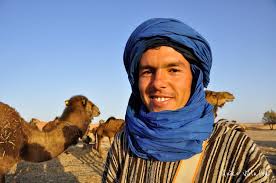Essential Information
By Air
Direct flights are available from cities across Europe, the Middle East, West Africa and North America. Royal Air Maroc is Morocco’s national carrier. For information about Moroccan airports, visit the website of Office National des Aéroports (www.onda.ma). Casablanca’s Mohammed V International Airport is the country’s main gateway, followed by Menara airport (Marrakesh). Other important airports include Fes–Saïss (Fez), Ibn Batouta International (Tangier), as well as Ouazazarte, Agadir and Nador.
Here are some official non-religious fests whose dates are fixed:
1 January: New Year’s Day, • May 1: Labor Day, • July 9: Youth Day, • July 30: Throne Day (Coronation of King Mohammed VI), • Aug. 14: Reunification Oued Ed-Dahab, • August 20: Anniversary of the Revolution of King and People, • Nov. 6: Day of the Green March, • November 18: Independence Day
In the terms of safety, Morocco is perhaps the safest country in Africa. Moroccan authorities have made a lot of efforts to secure the tourism in the country with a noticed attempt to get the quality higher. A special police to protect tourism has been created.
- Police: dial 19 from a land-line, 112 from your mobile
- Mounted Police (outside cities): 177
- Firemen: 15
- Ambulance: 15
Cell/mobile phones, telephone boxes, internet, postal, fax and telegram services: you can stay connected for your entire journey. Mobile phone networks work well in large cities and touristic spots.
Telephone numbering
To call Morocco
- • Land-line: Dial 212 + 5 track 8 digits
- • Mobile phone: Dial 212 + 6 track 8 digits
To call from Morocco
- Landline: Dial 0 5 8 digit tracking
- Mobile phone: Dial 0 6 8 digit tracking
- More Information on the site of Morocco Telecom
If you can, choose the toilet of a luxury hotels. There are public toilets at the airports, railway stations, restaurants and cafes. Smart travelers take with them their toilet paper, because most Moroccans use water to clean.
Train
Most big Moroccan cities are supplied by the train services. The main lines of the country leave from Casablanca.
Bus
Buses provide connections between most cities and towns of the country. In the bus stations, there are also private buses which provide regular trips between most Moroccan cities.
Taxis
Big cities have their conventional taxis. There are other types of taxis in Morocco. The “Grand-taxi” is for transport from one city to another. The”Petite Taxi”, with roof rack, take one to three passengers for urban journeys. For longer distances or trips, the Grand-taxi is a great solution, it is generally comfortable, but remember to negotiate the price in advance.
Airport
The main airport in Morocco is in Casablanca, Mohammed V airport. The second in importance is Agadir airport, it also provides direct links to several European capitals, the same as well as with Rabat, Marrakech, Ouarzazate and Tangier.
Payment
The currency of Morocco is “the Dirham” (MAD). As a precaution, do that in the banks or approved financial institutions and will issue you a voucher necessary to convert, at the end of your stay, your DH will be converted into your own currency. Most Moroccan cities are provided with banks and cash machines, you can get Cash with your credit card whenever you like.
Preparation
By Air
Direct flights are available from cities across Europe, the Middle East, West Africa and North America. Royal Air Maroc is Morocco’s national carrier. For information about Moroccan airports, visit the website of Office National des Aéroports (www.onda.ma). Casablanca’s Mohammed V International Airport is the country’s main gateway, followed by Menara airport (Marrakesh). Other important airports include Fes–Saïss (Fez), Ibn Batouta International (Tangier), as well as Ouazazarte, Agadir and Nador.
Arabic is the language used in Morocco, but you will also be understood in French and Spanish in many places.
Comfortable good walking shoes, sleeping bag, comfortable sweaters and windbreakers: the temperature differences between day and night can be significant, especially in winter (November, December, January).
Head protection: The scarf (turban), is made to protect your head, your neck and shoulders from the hot sun. For the sandstorms a hat or scarf is a necessity.
Flashlight (or headlamp), wet wipes, sunglasses, matches, and personal pharmacy.


Morocco, a North African country bordering the Atlantic Ocean and the Mediterranean Sea, is distinguished by its Berber, Arabian and European cultural influences. The capital, Rabat’s Kasbah of the Udayas, is a 12th-century royal fort overlooking the water.
- Capital: Rabat
- Currency: Moroccan dirham
- Continent: Africa
We recommend to buy your bottles of mineral water, or bring your pellet micropur. Remember to wash your hands frequently, do not consume water which has not been opened in front of you and avoid ice cubes.
It is forbidden to take pictures in the military areas, ports events, airports and some museums. Before taking a picture of a person, do not forget to ask their permission first.
Morocco is sweltering in the summer months; however, it’s still necessary to cover the shoulders and legs. For women, a loose maxi dress with a light sweater or scarf over the shoulders is a brilliant way to stay cool and blend in with women who wear jabadors and kaftans.
It’s not necessary for non-Muslim women to wear a hijab, or a veil that conceals a woman’s hair. Moroccan women choose for themselves whether or not they wish to cover, and this decision is largely based on religious motivations.


- Police: dial 19 from a land-line, 112 from your mobile
- Mounted Police (outside cities): 177
- Firemen: 15
- Ambulance: 15
The 220 V is standard, in some places, and in hotels. Some cities, however, are still supplied with 110 V.
Not required for most nationalities for stays of up to 90 days. Passports must be valid for six months beyond date of entry. More info
Reservation
There are a lot of companies in most Moroccan cities for car rental. The minimum age for renting a car is 21 years old. The most convenient method of payment is the credit card, so you do not advance a substantial bond. Some companies accept to deliver the car in different cities.
Weather
The best time to travel to Morocco is from September to April. In summer, the temperature is very hot and dry. From November to February, you have to take warm winter clothes, a good jacket, and a good sleeping bag, because the nights can be very cold even though the days are warm.
Marrakesh24°clear skyhumidity: 57%wind: 3m/s WSWH 25 • L 24
35°
Sun
37°
Mon
43°
Tue
46°
Wed
Weather from OpenWeatherMap We recommend to buy your bottles of mineral water, or bring your pellet micropur. Remember to wash your hands frequently, do not consume water which has not been opened in front of you and avoid ice cubes.


